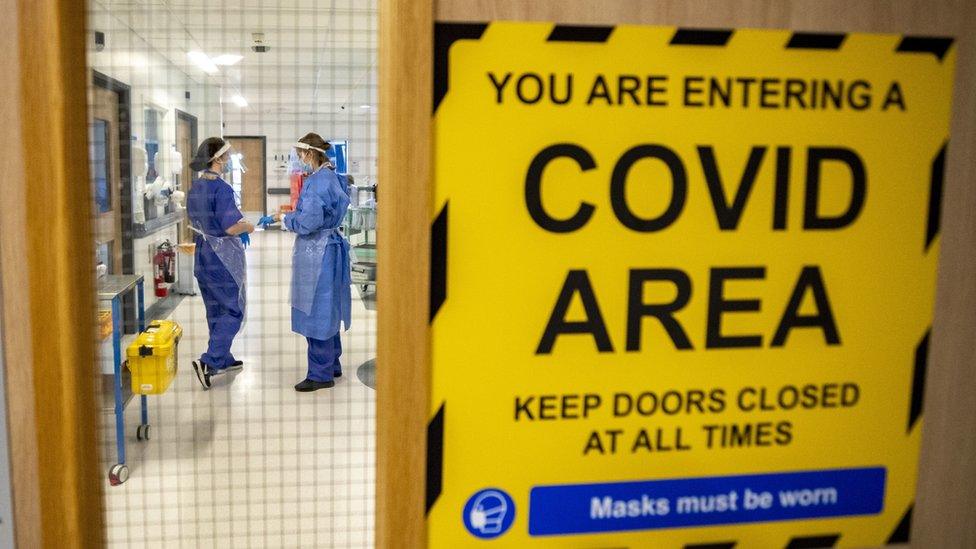Covid Inquiry: Handling of funerals was 'traumatic'
- Published
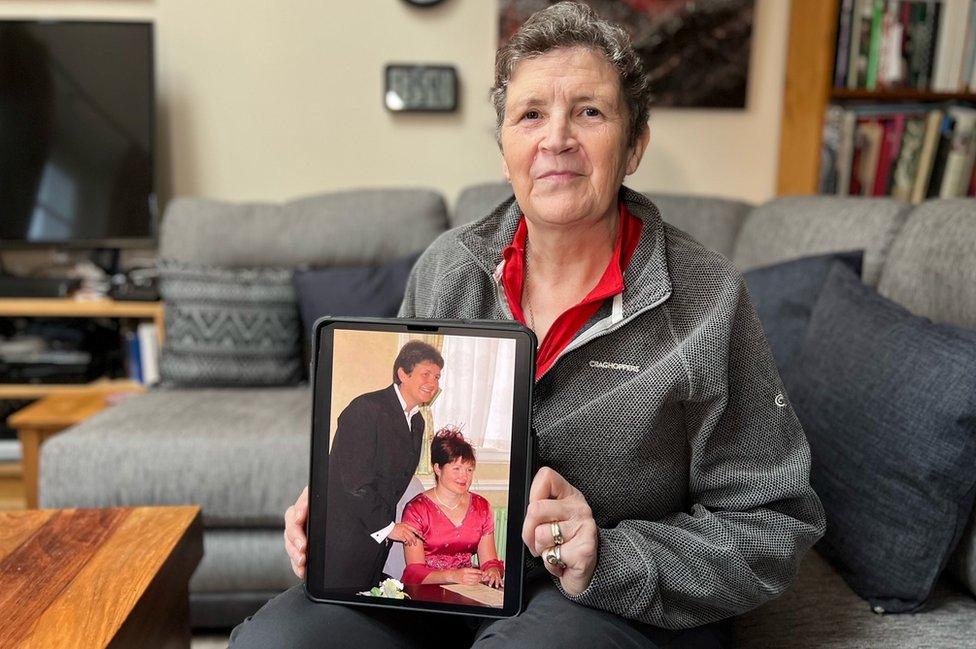
Jane Morrison lost her 49-year-old wife Jacky during the pandemic
A widow who lost her wife to hospital-acquired Covid in 2020 has spoke out about how the handling of funerals during the pandemic was "traumatic'.
Jane Morrison, of the the Scottish Covid Bereaved group is the first person from Scotland to give personal testimony at the UK Covid-19 Inquiry.
Her wife died five days after testing positive for the virus in hospital.
She said she was allowed to be with her wife for her final moments - but then had to isolate for 14 days.
"If someone had been with a loved one at the end, they had a choice," she told the inquiry yesterday.
"You can either come in and be with them at the end or you can go to the funeral. But you can't do both because you need to be in isolation."
Jane Morrison thanks key workers for kindness
Ms Morrison began her evidence with a short statement thanking those that have expressed their condolences with genuine sincerity. She also thanked all the key workers who took that "extra, often small, compassionate step".
Her wife Jacky Morrison-Hart was admitted to hospital for a separate disease for two weeks and caught Covid on her 15th day there.
Ms Morrison said it was clear that her wife caught Covid while at at Ninewells Hospital in Dundee and that needing to go into immediate quarantine after her death made her feel incredibly isolated.
She also raised concerns over the perceived breakdown in proper infection control in hospitals an issue "particularly close" to her own heart.
"We want to find the answers to what went wrong," she said.


There have been more than 17,000 Covid deaths in Scotland. Jane Morrison, who lost her wife Jacky to Covid in 2020, spoke for Scottish bereaved families as she gave evidence yesterday.
Like others, they want to know what more could have been done to prevent these deaths and what can be done to stop it happening again.
Scottish ministers and officials, including the former first minister, have already given evidence and some familiar themes emerged that indicated a lack of planning in Scotland, as elsewhere in the UK.
Too much focus on flu, resources diverted to planning for Brexit and we've also had warnings that staff shortages in the NHS in Scotland are making it extremely difficult to plan for the future.
Scotland is holding its own public inquiry into the Covid pandemic but a series of issues and the resignation of its original chair have set it back.
The probe into Scotland's response to the coronavirus pandemic will begin its hearings in October.
All of the families hope that it, and the UK inquiry, will move swiftly to help them understand why their loved ones died.

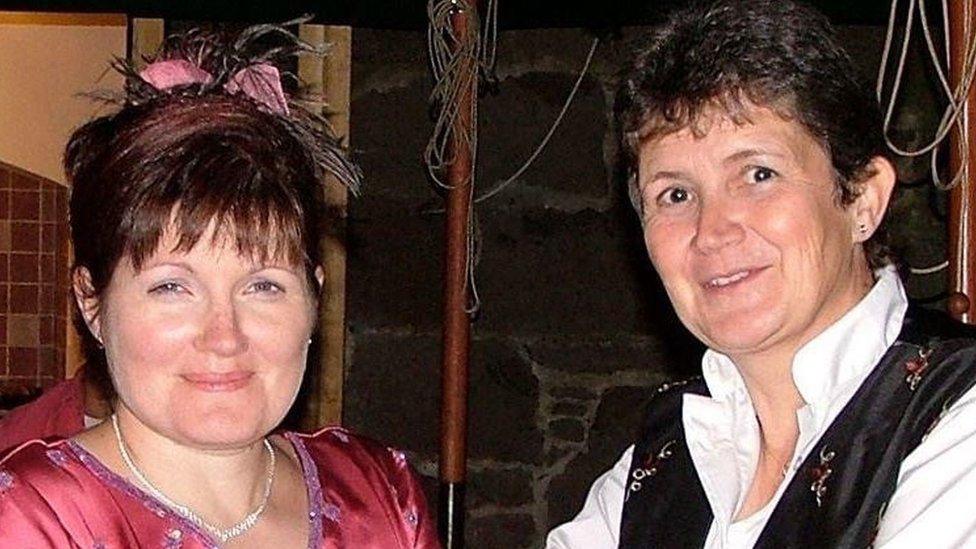
A family photo of Jacky Morrison-Hart, left, the wife of Jane Morrison
Infection control plans seen by Ms Morrison only invited visitors to use alcohol gel to clean their hands.
While these plans were "were beefed up" after the pandemic started, she described how patients were able to leave their wards to meet up with people in the grounds of the hospital without masks.
She also highlighted that there were vast differences between health boards when it came to infection control and that such measures also varied between hospitals in the same health board.
She said it was more surprising that different wards had different infection control procedures within the same hospital.
The UK Covid-19 inquiry is continuing and is nearing the end of its first module. The separate Scottish Covid-19 inquiry has spent just under £8m so far on preliminary work but has yet to hold any public hearings .
It is currently collecting the experiences of members of the public and how they thought the Scottish government handled the health crisis.
Related topics
- Published13 June 2023
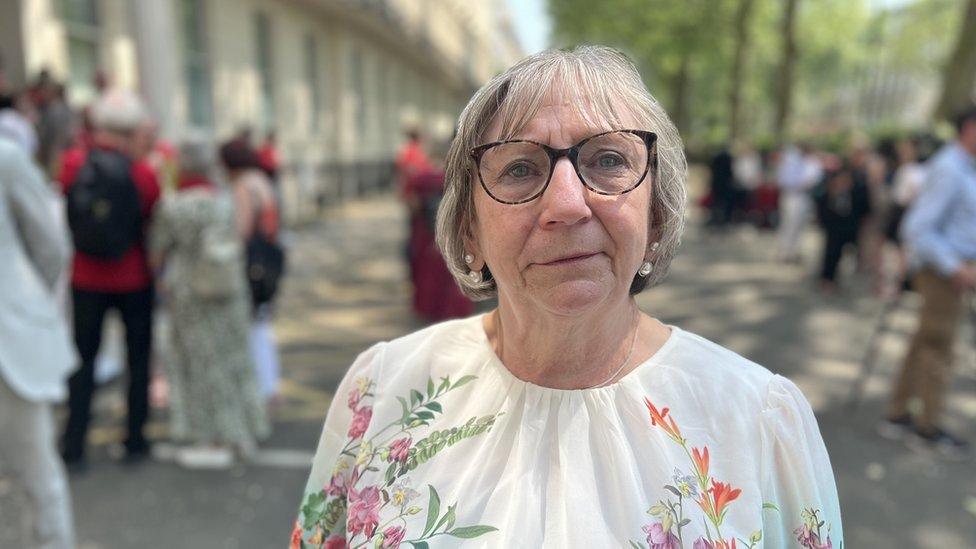
- Published23 May 2023
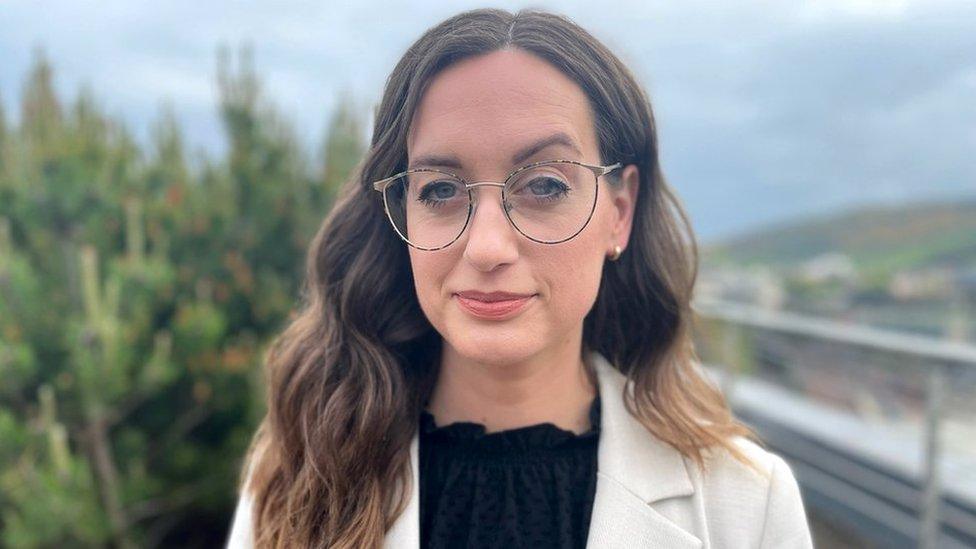
- Published18 July 2023
